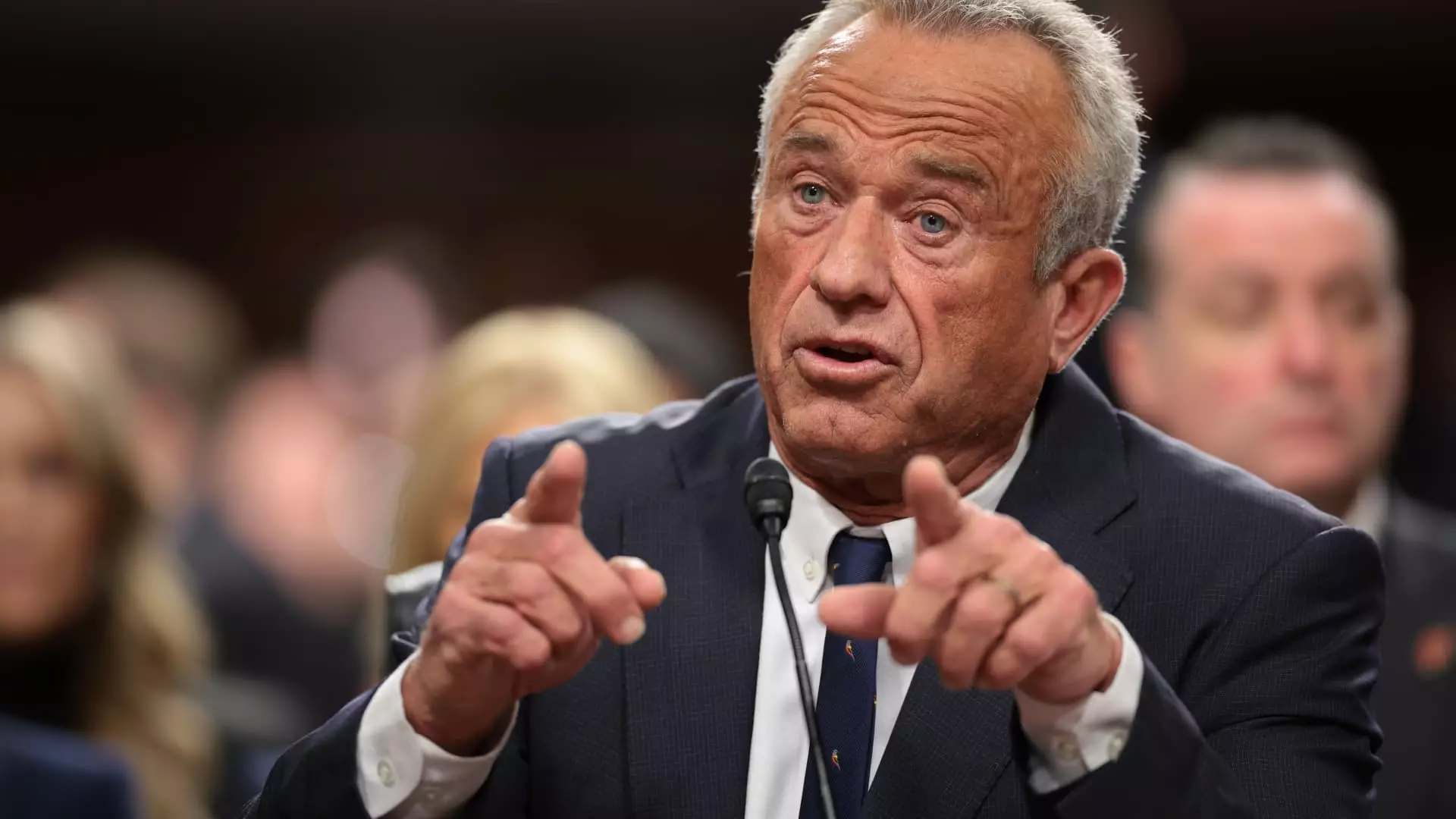In a striking declaration that reflects the urgent need for reform, Health and Human Services Secretary Robert F. Kennedy Jr. boldly stated his intention to rid America’s food supply of its most harmful additives. Kicking off a serious dialogue with major food industry executives, Kennedy characterized the presence of artificial dyes in food products as unacceptable. This call to action isn’t just symbolic; it represents a larger ideological battle that pits public health interests against entrenched corporate strategies. Perhaps this is the wake-up call consumers have been waiting for.
Kennedy’s receptive approach to collaboration—emphasizing constructive dialogue with industry giants like PepsiCo and Kraft Heinz—stands in stark contrast to the often adversarial relationship typically found in governmental dealings with corporations. The notion that he could take decisive action should the industry drag its feet is a clear signal: change is coming, and those resistant to it will have to reckon with a more assertive regulatory landscape.
Rethinking Nutritional Standards
The urgency behind Kennedy’s agenda is further underscored by his “Make America Healthy Again” platform. Highlighting the pervasive influence of corporations over health policy, he has taken a strong stance against a corrupt alliance between food manufacturers and government health agencies. The core of his argument is simple yet powerful: prioritize nutritious food over pharmaceuticals in our collective fight against chronic diseases. This perspective reflects a significant shift that could reshape public health paradigms for generations to come.
Kennedy has cited the alarming trends of rising chronic diseases, particularly among children, as justification for his stance against artificial additives in food. It’s an argument that should resonate with any parent who has watched their child’s health decline amidst a bewildering maze of food choices. If Kennedy manages to implement changes that prioritize real, wholesome foods, it could not only benefit present generations but also cultivate a healthier future.
The Unsettling Reality of Food Coloring
The FDA has recently taken steps to revoke the authorization of certain harmful food colorings, like Red No. 3, which has been linked to cancer in laboratory animals. However, the half-hearted measures taken thus far indicate just how challenging it is to strike a balance between consumer safety and corporate interest. This scenario epitomizes the struggle for genuine accountability in the food industry. Kennedy’s focus on eliminating these harmful ingredients could signify a genuine turning point in the ongoing debate surrounding food safety regulations.
Kennedy’s strong opinion and willingness to challenge the existing norms could inspire a healthier national dialogue surrounding food ingredients. The fact is, most consumers are not aware of the alarming realities about some of the food they consume daily. In placing this issue under the spotlight, Kennedy could drive a movement that compels industry leaders to confront their practices head-on.
Concerns Beyond Nutrition
However, the conversation doesn’t stop at food. Kennedy’s agenda inevitably brushes against broader public health issues, particularly in light of his controversial views on vaccinations. His claims that he will assess childhood vaccination schedules are concerning, especially as vaccine uptake has been waning. It is crucial that while pursuing food reform, the administration doesn’t inadvertently complicate other areas of public health. The challenge lies in doing one without compromising the integrity of the other.
This pervasive skepticism from Kennedy may reflect a desire for transparency, but it could also sow further seeds of distrust among parents and the general public. The potential removal of members from committees concerning vaccination policies raises additional questions around the objectivity of public health decision-making. Balancing the fight for clean food with the need for community health is an intricate dance that requires deft navigation, lest public health outcomes deteriorate.
A Call for Transparency and Accountability
The conversation initiated by Kennedy marks a pivotal moment for consumers who demand accountability and transparency from both their government and the food industry. With a directive to eliminate the most egregious elements of our food system, he galvanizes not just consumers but also advocates for a significant reevaluation of our nutritional standards. It is a call to arms that embraces the notion that a healthy nation is rooted in clean food—an essential principle that has been neglected for far too long.
Ultimately, whether Kennedy can sway powerful food corporations and policy boards toward meaningful change remains to be seen. But what is clear is that this dialogue reveals a fracturing trend within the status quo—one that is ripe for reform, innovation, and a brighter future. Consumers deserve nothing less.

